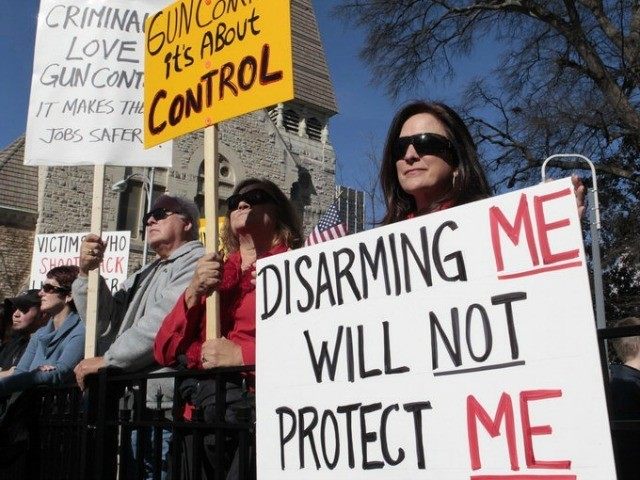On February 16, Politifact revisited Lori Haas’s claim that states with expanded background checks see a “49 percent” reduction in female homicides and found it to be only “half true.”
Haas is the Virginia state director for the Coalition to Stop Gun Violence.
To test Haas’s claim, Politifact did a comparison between states where private gun sales are legal and off the books, as they have been since 1791, and states where private gun sales are handled like retail ones and therefore forced to be done via a government background check.
Politifact found there was a reduction in some cases but not in others. For example, Minnesota does not have expanded background checks and the rate of firearms homicides for females in that state is 0.6 per 100,000 women. In North Carolina, where a background check is required for every handgun sale—whether retail or private—the rate of firearms homicides for females is three times higher, or approximately 1.8 women per 100,000.
In a pure comparison, Politifact found that the rate for firearms homicides for females was “over 1.0 per 100,000” in states with expanded background checks and “1.6 per 100,000” in states without.
This would appear to indicate a “38 percent” reduction, except for one crucial point—the two analysts contacted by Politifact warned that such an across-the-board comparison risked conflating correlation and causation, while failing to take into account the variable populations and number of guns owned in each state, as well as other state-sponsored programs that reduce domestic violence but have nothing to do with guns or gun laws.
Without addressing these issues, the benefit gained from everything from a lower population to domestic violence treatment programs will show up as a benefit gained by gun control.
For example, University of North Carolina Greensboro psychology professor Jacquelyn White said, “There may be other factors [in states with more gun control], such as a more enlightened commitment to creating healthy and safe communities, that result in an array of programs and policies that reduce domestic violence.”
And Florida State University criminology professor Gary Kleck pointed out that “states that extended background checks to private gun transfers had lower gun ownership rates even before those laws were passed.” Moreover, he said states with “stricter gun laws are more often urban, less likely to be Southern or Western (and thus culturally different), more politically liberal, etc.”
Kleck was showing that all these factors have to be part of the comparison before it can be accurately made.
In the end, Politifact pronounced Haas’s claim only “half true.” But if professors White and Kleck are correct, then even that half of it is questionable.
Follow AWR Hawkins on Twitter @AWRHawkins. Reach him directly awrhawkins@breitbart.com.

COMMENTS
Please let us know if you're having issues with commenting.